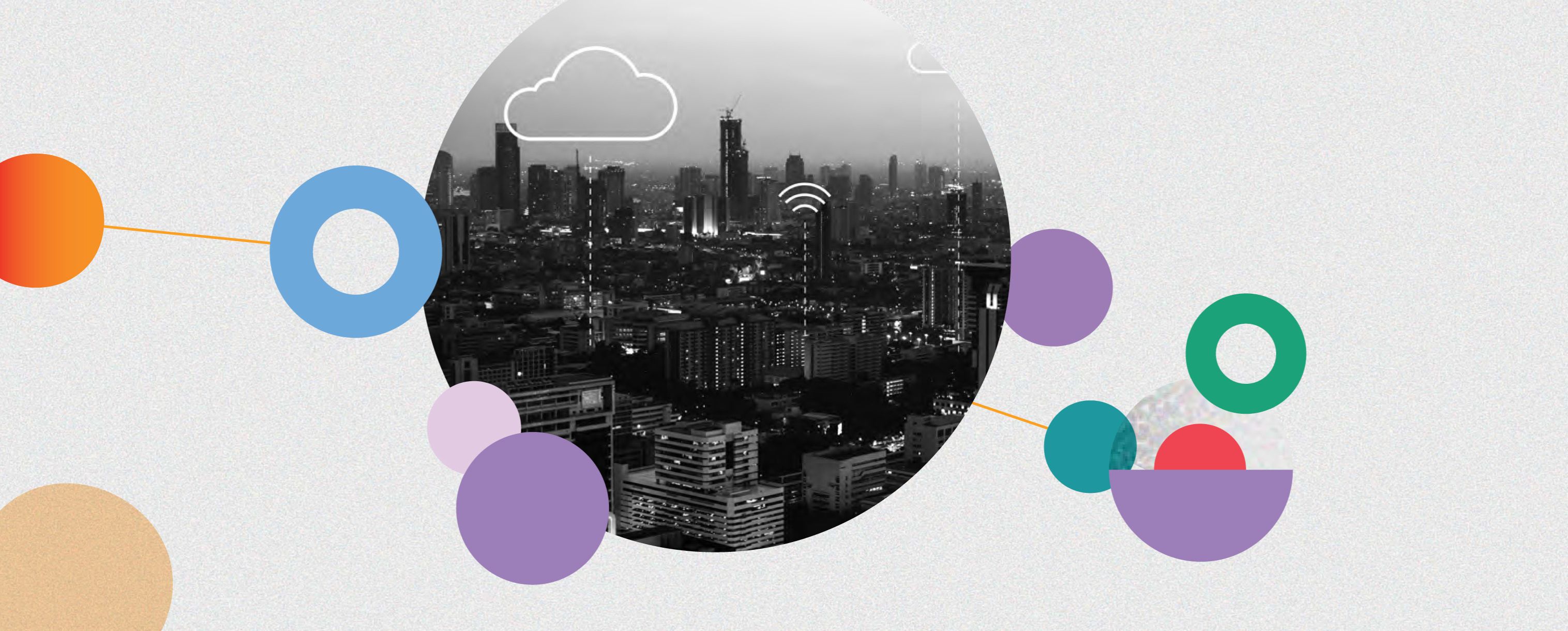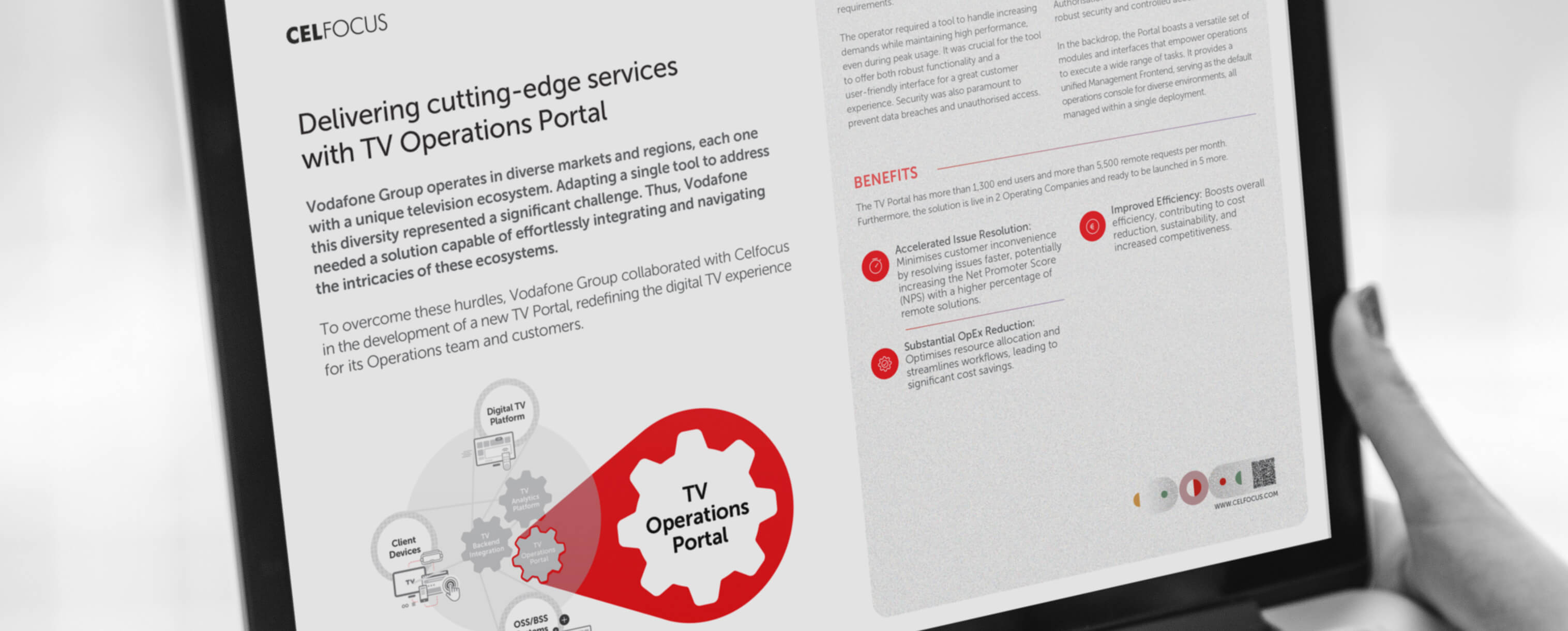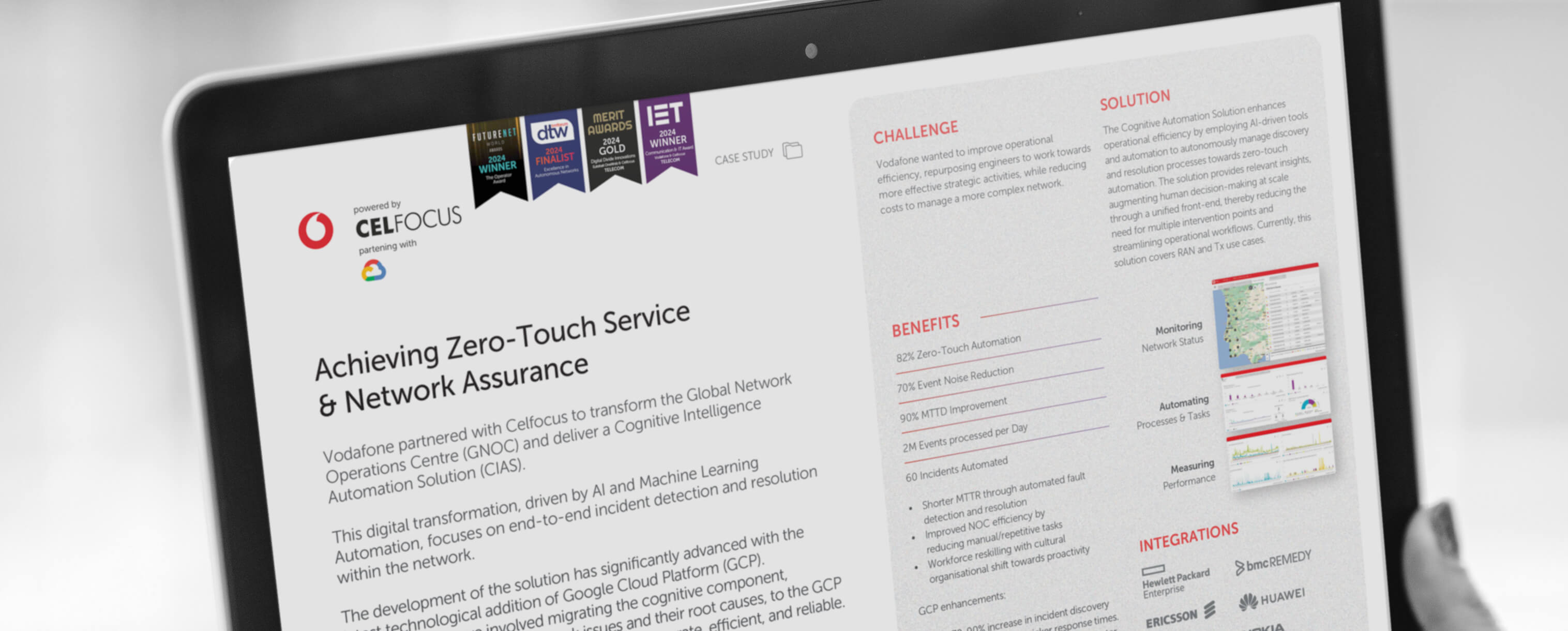The Vodafone Group’s NOC mission is to monitor, control and ensure network availability across multiple geographies. To cope with a dynamic and unsteady environment, the company designed a long-term strategy for its OSS transformation, composed of three stages:
- 1. Operational Centralisation
- 2. Tools Centralisation
- 3. Process Automation
Bearing this in mind, the Vodafone Group set a 3-year goal of reducing 80% of the effort allocated to first-line support activities through automation. In addition, the challenge included the creation of an Agile Centre of Excellence, introducing DevOps methodology and a specific team to implement it at a certain stage of the project, assuming the mission of continuous improvement.Celfocus’ investment in areas like Machine Learning and Big Data Analytics, combined with a deep understanding of the OSS layer, made it the right partner to deliver this next-generation Network Operation Centre.






















